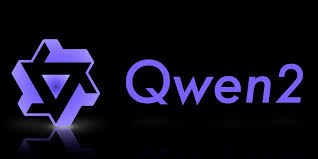Alibaba Qwen2 beats Meta’s Llama 3
Alibaba's Qwen2, surpasses Meta's Llama 3 in tasks like math and coding. Qwen2-72B, with 72.7 billion parameters, offers superior performance in multilingual pre-training, positioning Alibaba at the forefront of AI technology advancements.


Artificial intelligence (AI) continue to reshape the technological landscape, with Alibaba Group Holding at the forefront of these innovations. Recently, Alibaba announced the launch of Qwen2, the latest iteration in its Tongyi Qianwen family of large language models (LLMs). This new model claims to outperform Meta Platforms' Llama 3 in various tasks, marking a significant milestone in the development of AI technology. Alibaba Cloud introduced Qwen2, an open-source AI model with a range of updates that position it among the most powerful LLMs globally. This second iteration boasts multilingual pre-training and an expanded context window, allowing for more complex and extended queries and responses. These enhancements are critical for applications requiring deep understanding and generation of human-like text, such as chatbots and virtual assistants.
Qwen2 vs. Meta's Llama 3
Alibaba's Qwen2 comes in five variations, with the high-end Qwen2-72B model standing out due to its performance. Thec, featuring 72.7 billion parameters, has shown superior results compared to Meta's Llama 3-70B in benchmark tests. These tests spanned various domains, including mathematics, coding, natural and social sciences, engineering, and the humanities. According to a post on the model's official GitHub page, Qwen2 demonstrated exceptional capabilities, particularly in handling complex and diverse queries.
Enhancements and Capabilities
Qwen2 is designed to handle 27 languages in addition to Chinese and English. This multilingual capability is critical for global applications, making the model versatile across different linguistic and cultural contexts. The variations of Qwen2 range from the nimble Qwen2-0.5B to the sophisticated Qwen2-72B, accommodating different performance and resource requirements. This flexibility ensures that Qwen2 can be deployed in a variety of settings, from lightweight applications to demanding computational tasks.
A Swift Follow-Up
The launch of Qwen2 comes just a month after Alibaba unveiled Tongyi Qianwen 2.5, a closed-source model that also claimed to outperform GPT-4 in various Chinese language tasks. The swift release of these models highlights Alibaba's aggressive strategy and confidence in its AI research and development. The company is channeling substantial resources into AI, reflecting its commitment to maintaining a competitive edge in the rapidly evolving tech industry.
The Competitive Landscape
Alibaba is not alone in its pursuit of AI excellence. Other Chinese tech giants, such as Tencent Holdings, are also making significant strides in AI. In late May, Tencent introduced Yuanbao, a chatbot powered by its Hunyuan LLM. Since its launch last September, Hunyuan has undergone numerous enhancements and is now integrated into over 600 business scenarios within Tencent's ecosystem. This fierce competition among Chinese companies is driving rapid advancements and a domestic price war in AI development.
Leveraging AI for Business Transformation
Alibaba is leveraging its AI advancements to transform its business operations. Alibaba.com, the company's business-to-business (B2B) cross-border sourcing platform, recently introduced AI-powered tools aimed at connecting sellers and buyers more effectively. These tools are designed to boost sales by enhancing the platform's ability to match supply with demand, thereby improving efficiency and customer satisfaction.
Conclusion
The launch of Qwen2 marks a significant milestone for Alibaba in the AI race. With its advanced capabilities and superior performance in benchmark tests, Qwen2 sets a new standard for open-source LLMs. As Alibaba and other tech giants continue to invest in AI, the technology is poised to become even more integral to business operations and everyday life. The competition in AI development is not only driving innovation but also accelerating the integration of AI into various sectors, promising a future where AI plays a central role in shaping our world.